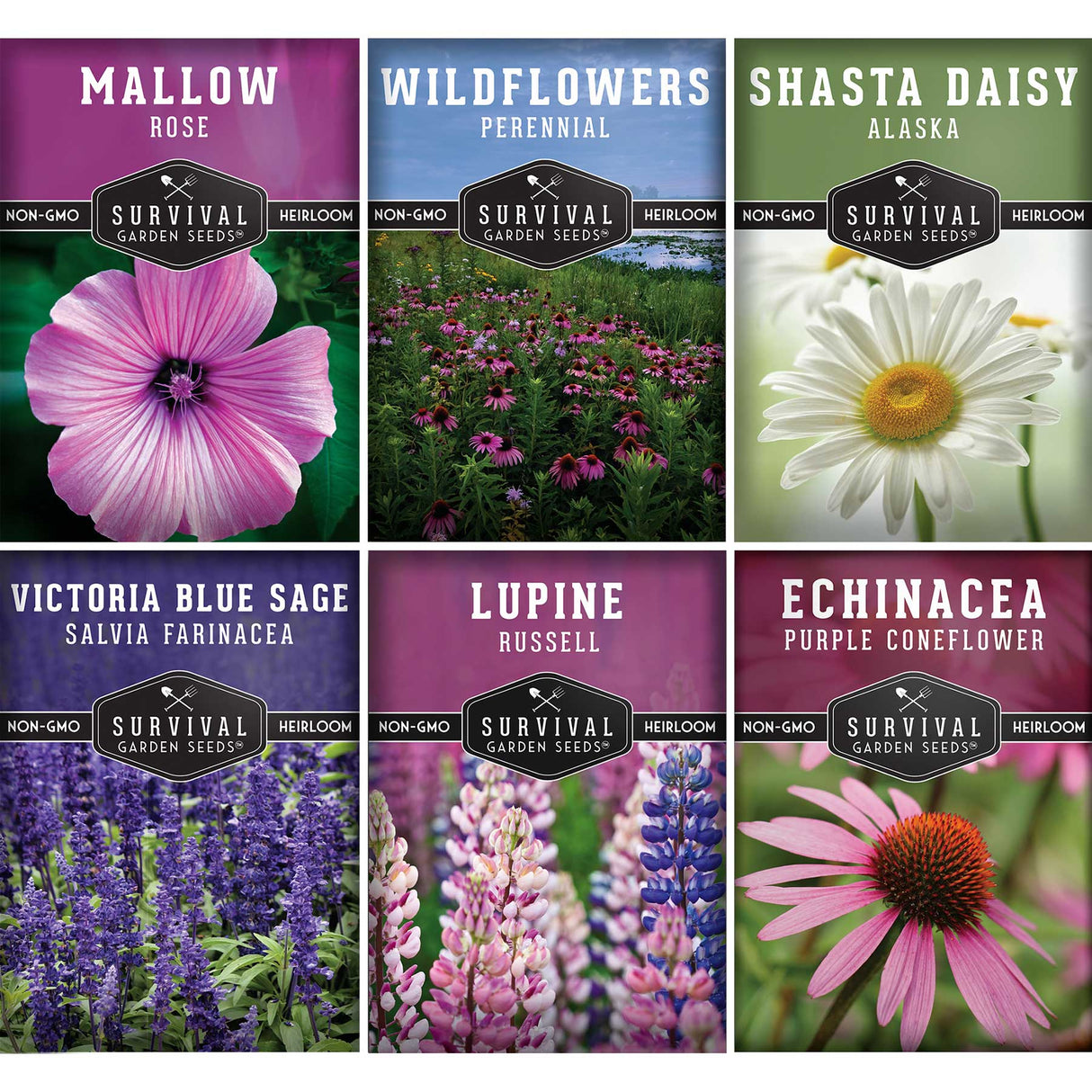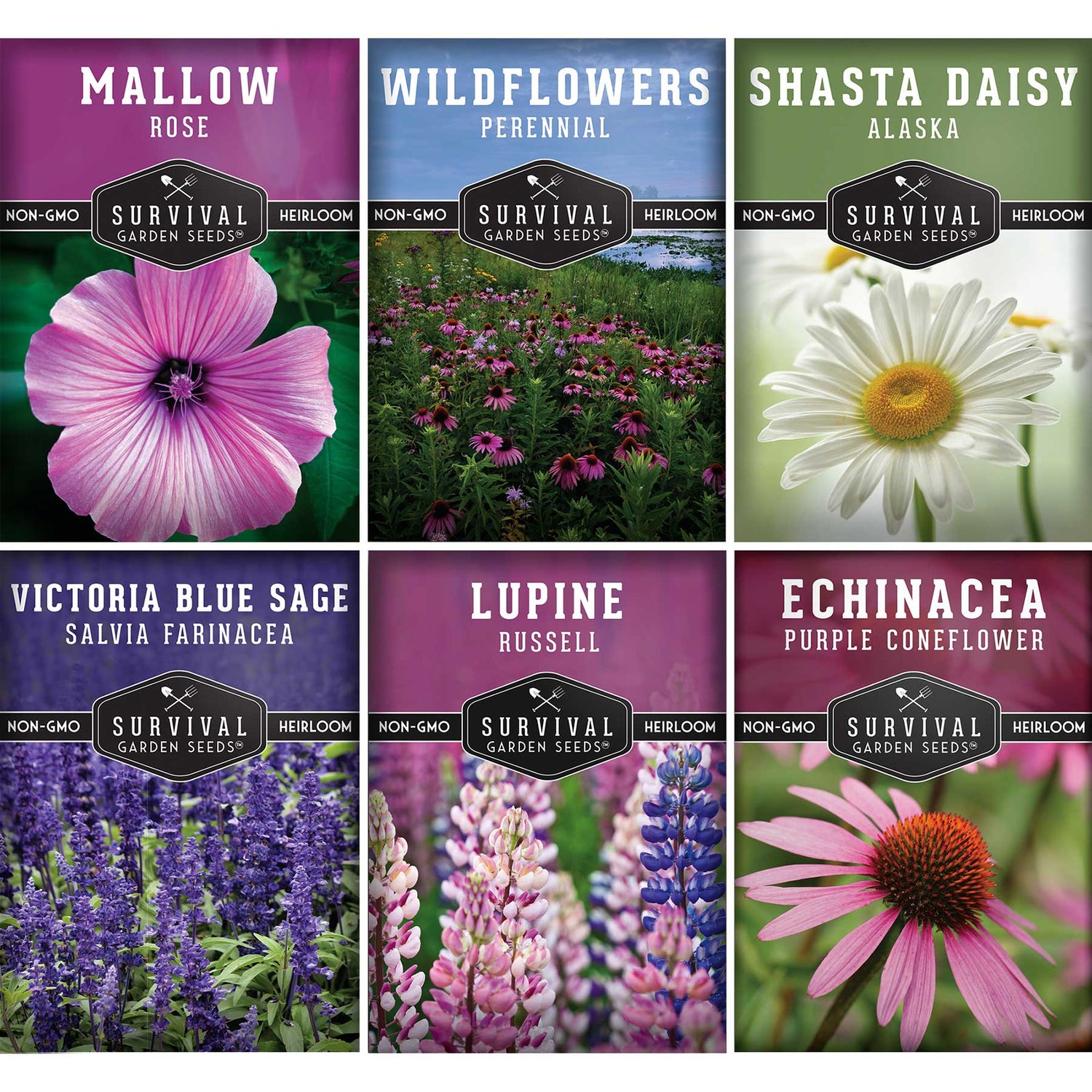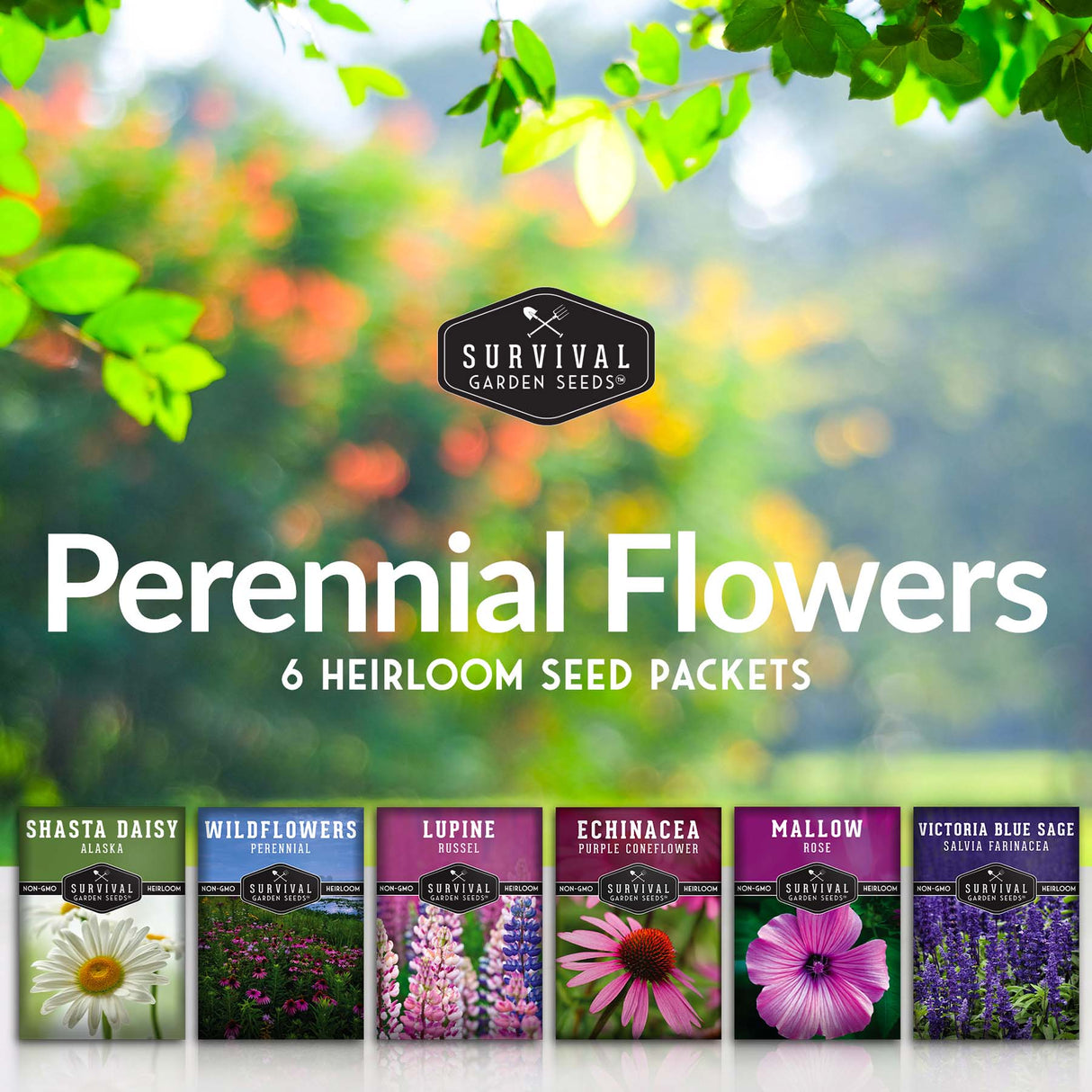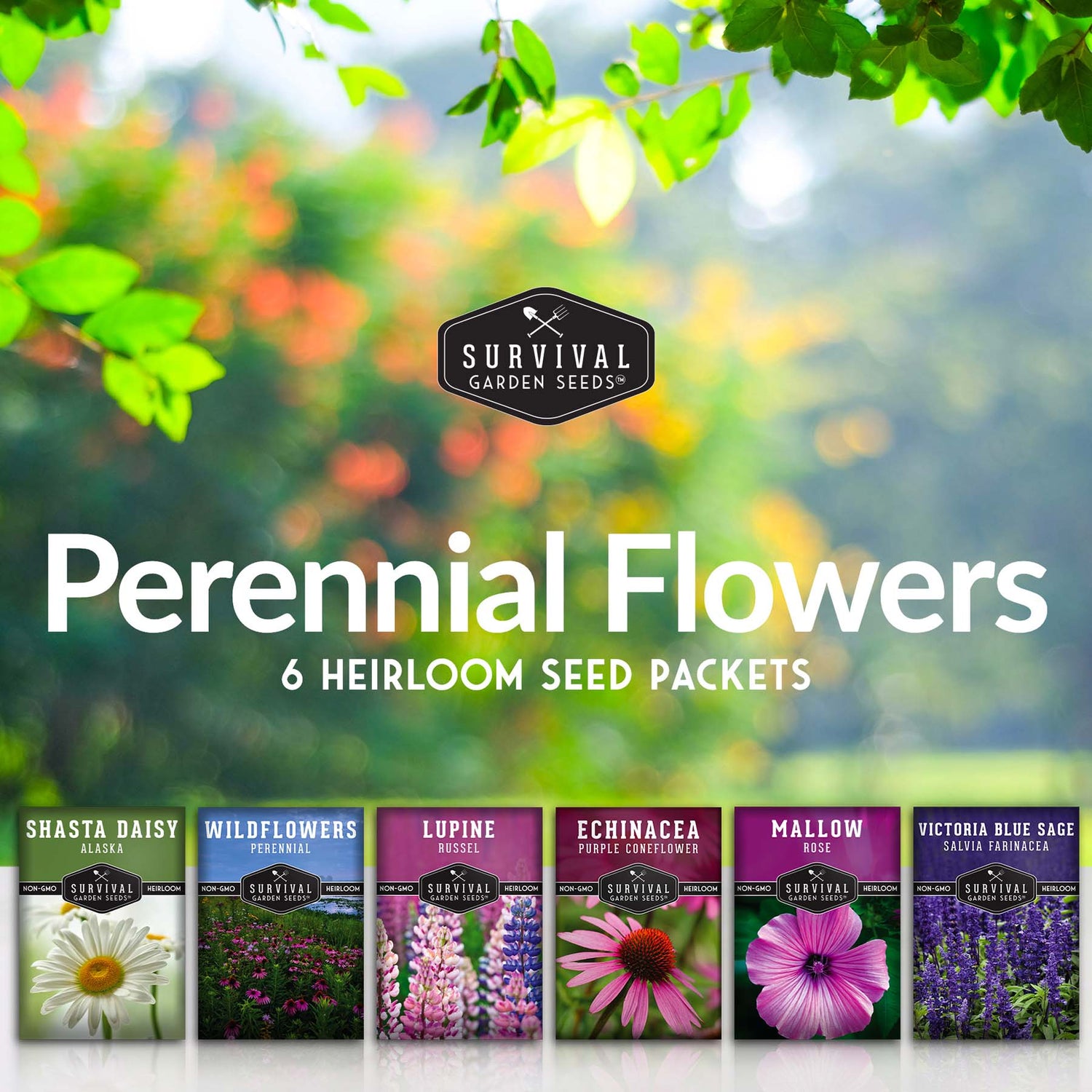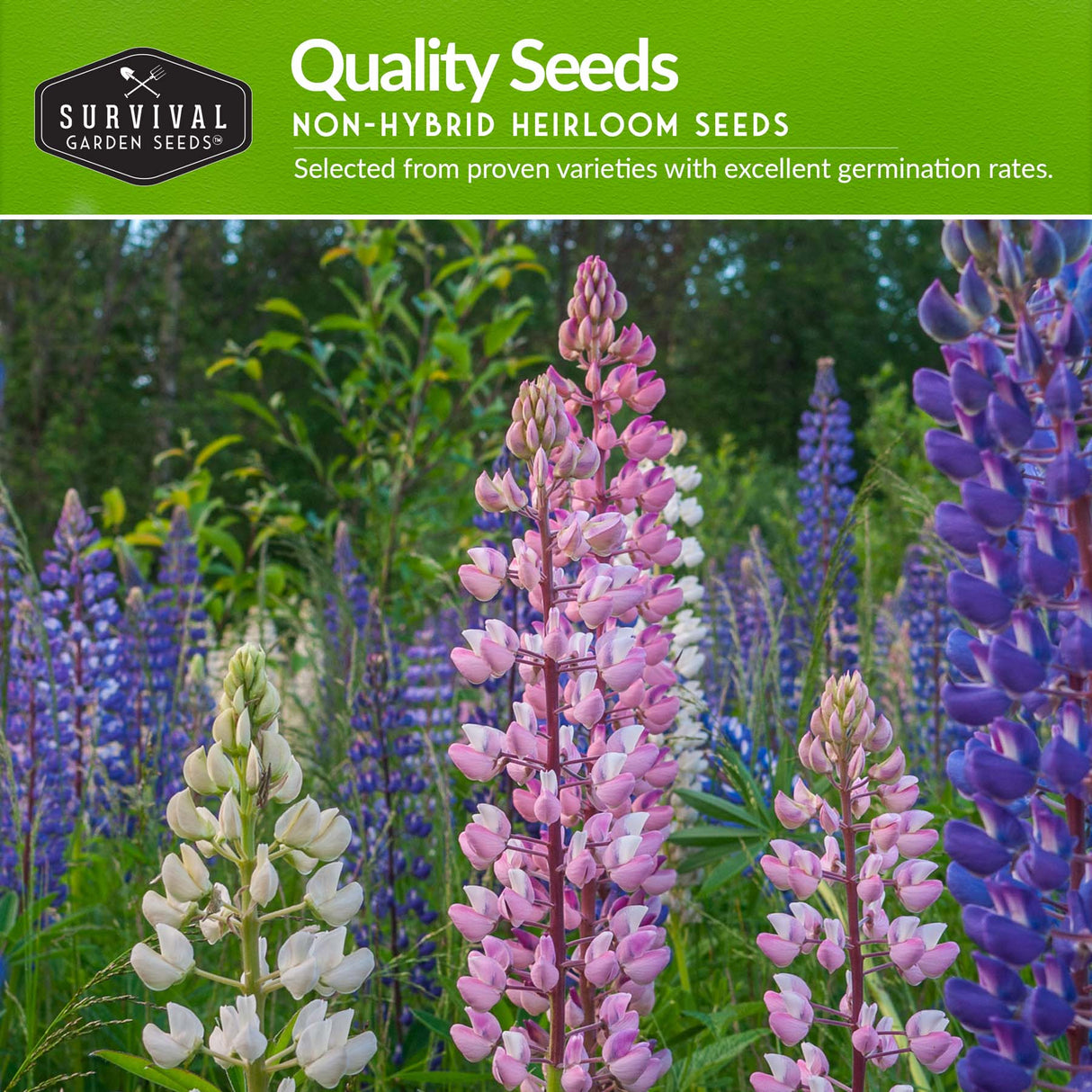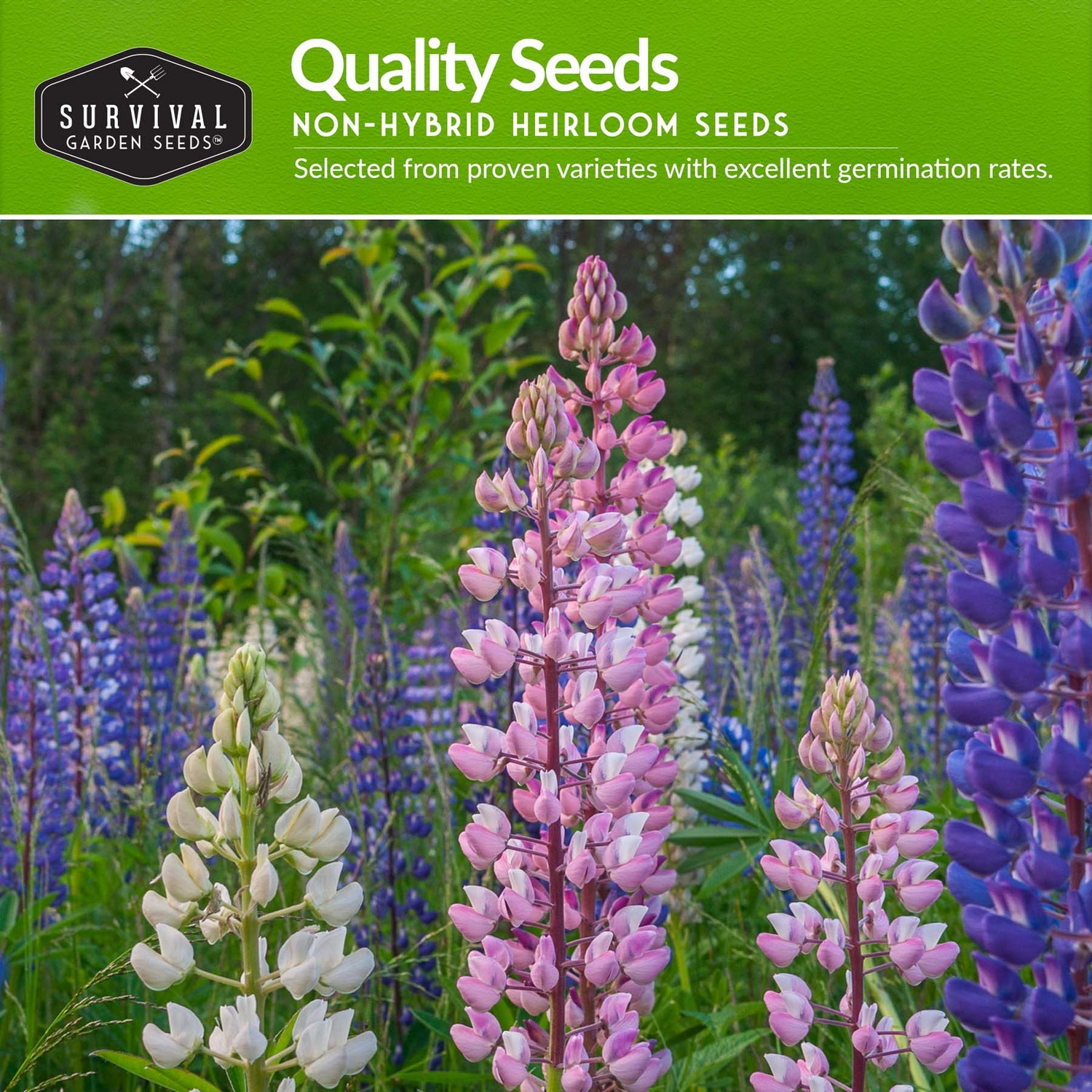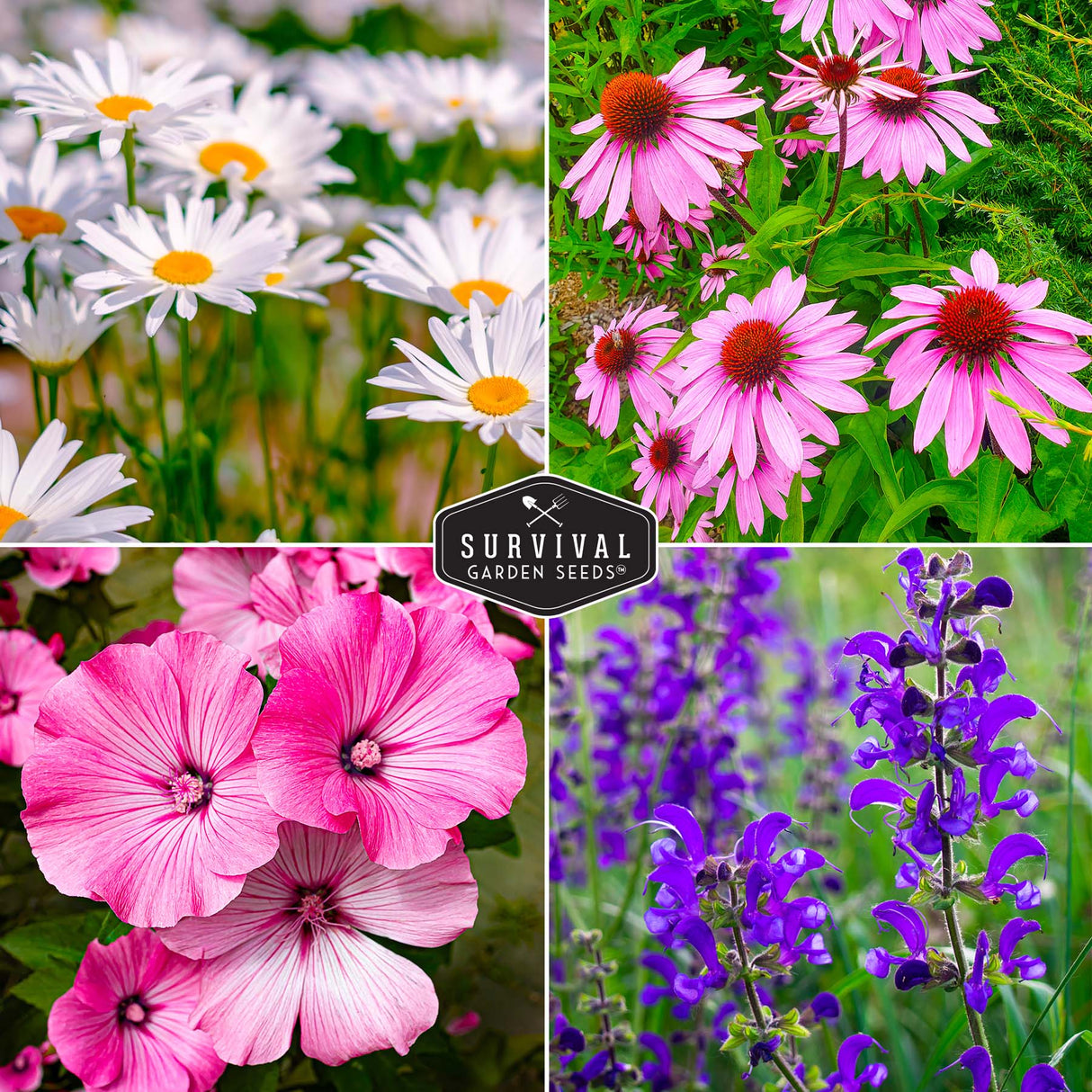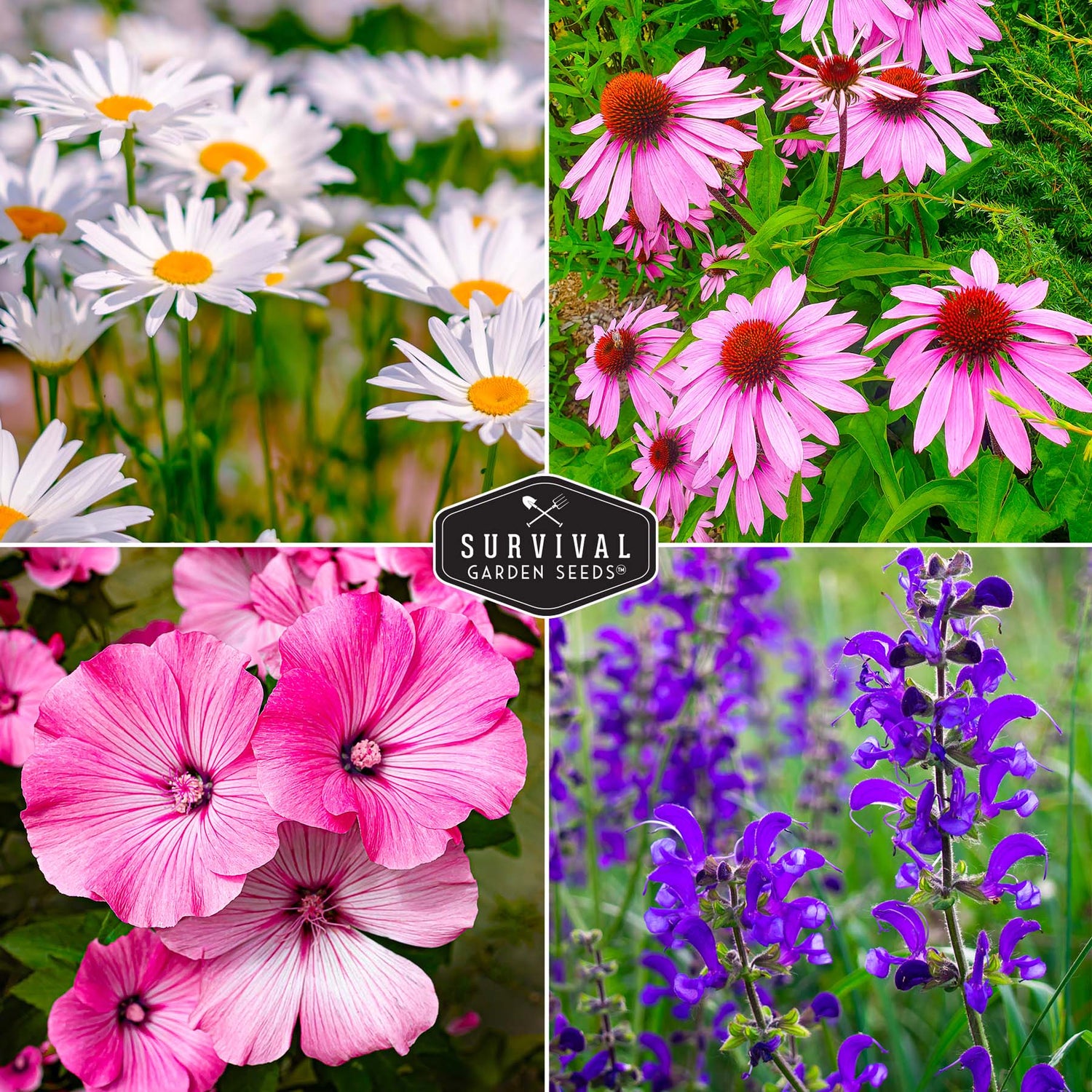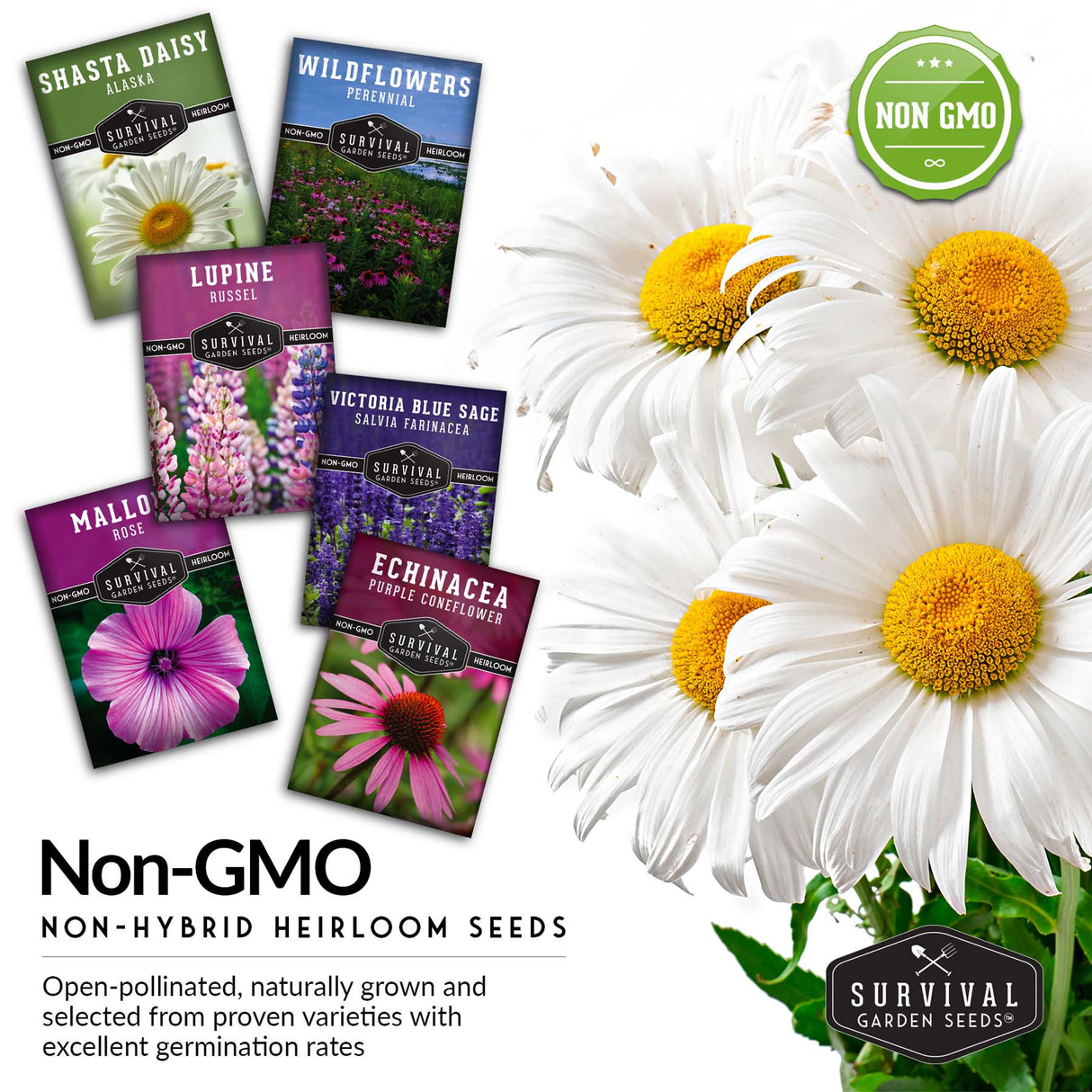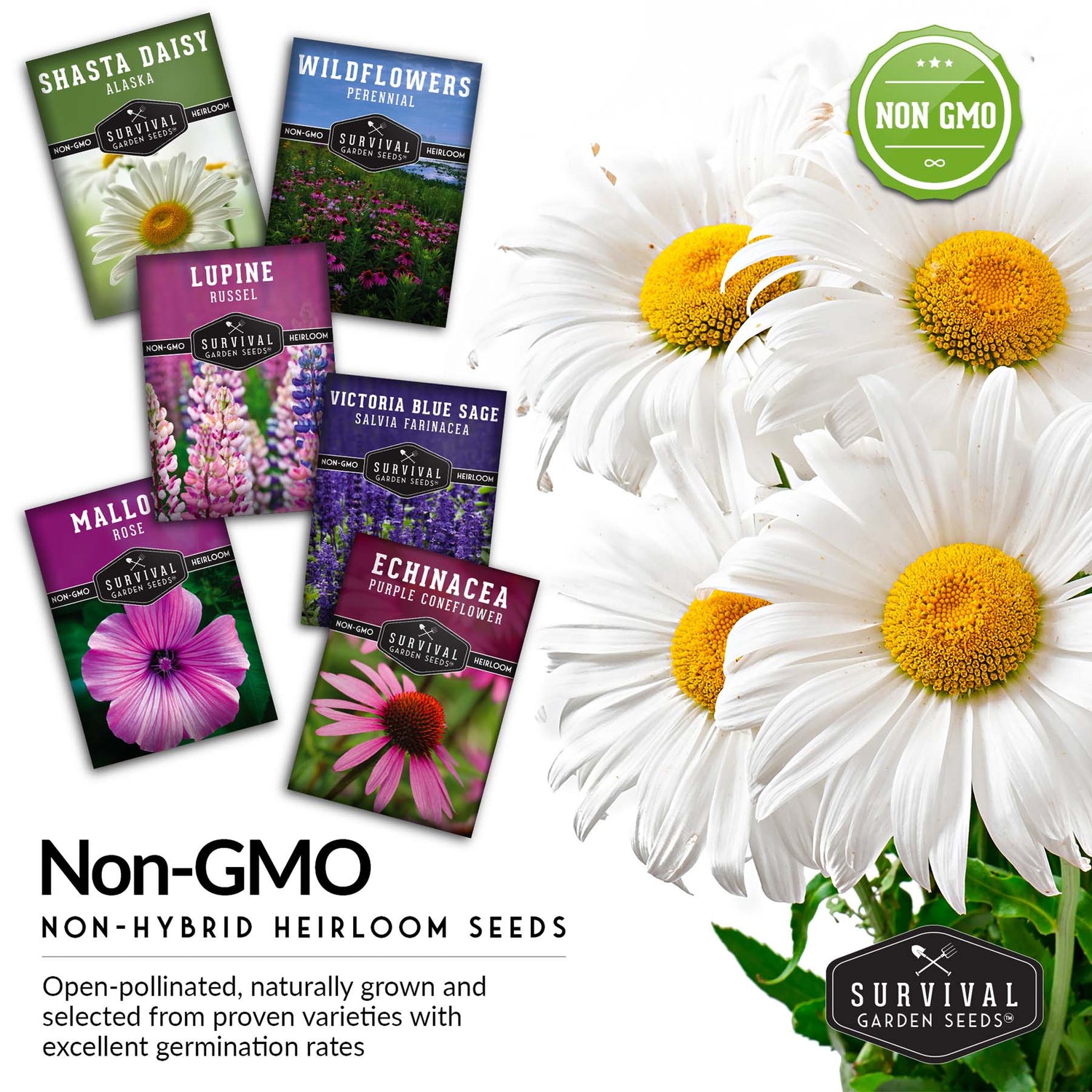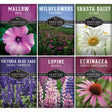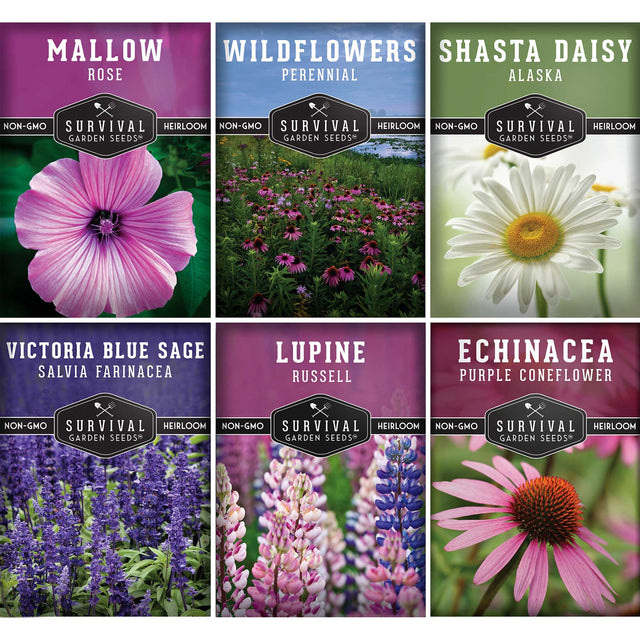Perennial Flower Seed Collection – Non-GMO Heirloom Blooms for Pollinator Gardens, Borders & Year-Round Color
Heirloom - Non-GMO - Reliable Germination
Perennial Flower Seed Collection – Non-GMO Heirloom Blooms for Pollinator Gardens, Borders & Year-Round Color is backordered and will ship as soon as it is back in stock.
Couldn't load pickup availability
Bring enduring color, structure, and pollinator life to your landscape with the Perennial Flower Seed Collection from Survival Garden Seeds. This carefully curated assortment features time-tested perennials that return year after year, creating a garden that evolves beautifully with the seasons.
Includes:
- Shasta Daisy (Leucanthemum × superbum) – Early-season white blooms with sunny yellow centers.
- Purple Coneflower (Echinacea purpurea) – Hardy midsummer favorite known for its long bloom time and pollinator appeal.
- Russell Lupine (Lupinus polyphyllus) – Tall, showy flower spikes in mixed colors for vertical interest.
- Rose Mallow (Hibiscus moscheutos) – Large, tropical-style blooms that add bold color in midsummer to fall.
- Blue Sage (Salvia farinacea) – Long-lasting, fragrant spikes that attract hummingbirds and bees.
- Native Wildflower Blend – A complementary mix of perennials chosen for continuous color and ecological support.
Season-Long Color & Pollinator Appeal:
This mix provides a natural progression of blooms—from early spring daisies and lupines to summer coneflowers and late-season sages—ensuring your garden stays vibrant from one season to the next. Each plant contributes texture, fragrance, and nectar to sustain bees, butterflies, and hummingbirds throughout the growing season.
Easy, Low-Maintenance Perennials:
Start seeds indoors 6–8 weeks before the last frost, or sow directly outdoors once frost danger has passed. These hardy flowers thrive in full sun and well-draining soil, with moderate watering and minimal maintenance. Germination typically occurs within 10–21 days, with first-year blooms from fast growers and stronger, fuller color in following seasons. Suitable for USDA Zones 3–9.
Sustainable, Reliable, and Beautiful:
Perfect for borders, cottage gardens, pollinator habitats, or naturalized landscapes, this perennial seed mix delivers sustainable beauty that returns stronger each year. It’s a thoughtful gift for gardeners who appreciate lasting, low-maintenance color. All species included are common ornamental perennials—never invasive or restricted species.
Heirloom Garden Seeds
All of our seeds are open-pollinated, non-GMO, heirloom varieties with tested germination rates
Payment & Security
Payment methods
Your payment information is processed securely. We do not store credit card details nor have access to your credit card information.
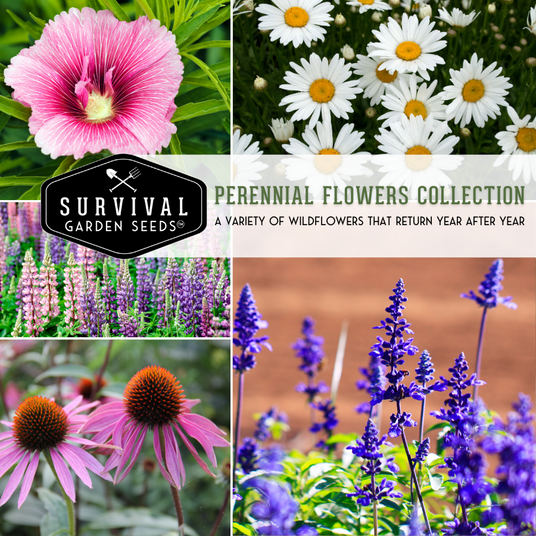
Grow an Abundance of Colorful Flowers
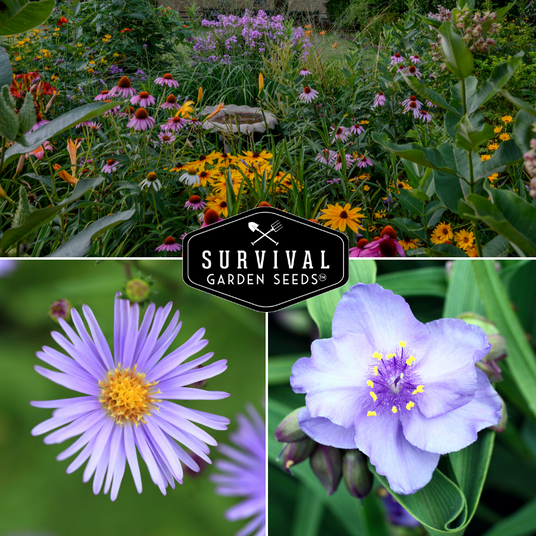
More Than Just Pretty Flowers
Why Choose Survival Garden Seeds
At Survival Garden Seeds, we believe in preparing today for tomorrow’s peace of mind. That’s why we offer only heirloom, non-GMO, and untreated seeds you can trust to nourish your family and support a sustainable lifestyle. As a family-owned American company, we’re committed to providing seeds that grow strong and true—helping you cultivate health, resilience, and beauty in your garden.
Frequently Asked Questions
Are your seeds heirloom and open-pollinated?
Are your seeds heirloom and open-pollinated?
Yes. All of our seeds are heirloom, open-pollinated varieties, which means they can produce seeds that grow true to type and are suitable for seed saving.
You can learn more about open-pollinated, heirloom, and non-GMO seeds in our Survival Garden Training blog.
Are your seeds non-GMO?
Are your seeds non-GMO?
Yes. All Survival Garden Seeds are 100% non-GMO. Our seeds are open-pollinated heirloom varieties and are never genetically modified.
Are your seeds treated with chemicals?
Are your seeds treated with chemicals?
No. Our seeds are completely untreated and free from chemical coatings, fungicides, or synthetic treatments.
How do I know my seeds are fresh?
How do I know my seeds are fresh?
Every seed packet includes a packed-for date, and we germination-test each seed lot before packaging to ensure high viability.
What is the shelf life of your seeds?
What is the shelf life of your seeds?
Most seeds remain viable for 3 to 5 years or longer when stored properly in a cool, dry place away from light and moisture.
In what USDA hardiness zones can I grow your seeds?
In what USDA hardiness zones can I grow your seeds?
Our varieties are selected to grow successfully across USDA Hardiness Zones 3 through 10. Each packet includes variety-specific planting guidance and germination tips.

